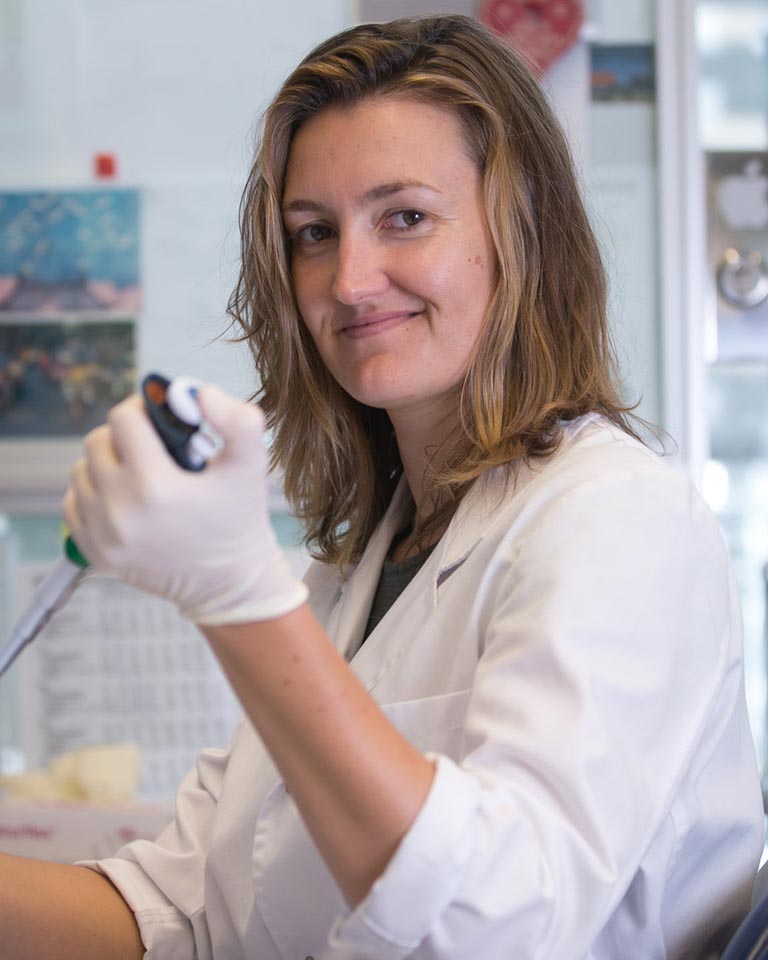BIO
Gloria Mas Martín (Girona, 1980) performed her post-doctoral training at the Stanford University, USA (2008-2013) and at the Center for Genomic Regulation (CRG) in Barcelona (2014-2016). Dr Mas Martin is currently working at the University of Miami Miller School of Medicine as an Associate Scientist (2016-present).
PROJECT
This project researches the epigenetic mechanisms for regulating gene expression in a variety of biological processes, including cancer. Its aim is to understand the causes at molecular level that determine how normal cells transform into tumors. More specifically, they utilize the highly-controlled system of the Acute Promyelocytic Leukemia (APL) induced by the PML-RARa oncofusion protein. APL is an aggressive subtype of leukemia triggered by the translocation of the PML gene and the RARa gene. The expression of the PML-RARa fusion protein in hematopoietic cells leads to dramatic changes in genome-wide gene expression, ultimately resulting in increased proliferation and the arrest of myeloid differentiation. They propose to analyze the dynamic changes in chromatin modifications, gene expression and genome architecture that occur in the initiation and progression of PML-RARa induced leukemia.
RESULTS
In collaboration with the laboratory of D. Saverio Minucci (IEO Milan, Italy), they have obtained samples of hematopoietic stem cells carrying the PML-RARa oncogene at different stages of leukemic transformation. They have mapped the genome-wide distribution of key histone modifications that mark active and inactive regions of the genome. Moreover, they have obtained the complete coding and non-coding transcriptome of normal and transformed cells over the different stages of leukemogenesis. In addition to the epigenome and transcriptome profiling, they have determined the three-dimensional organization of the genome during leukemic transformation induced by PML-RARa by performing “in situ Hi-C”. This technology allows to map distal interactions between regulatory regions of the genome mediated by PML-RARa, during the progression of leukemia. This study brings new light onto the molecular mechanisms by which onco-fusion proteins drive malignant transformation. The results of this work are currently (2018) in preparation for submission and publication in a peer-reviewed journal.

